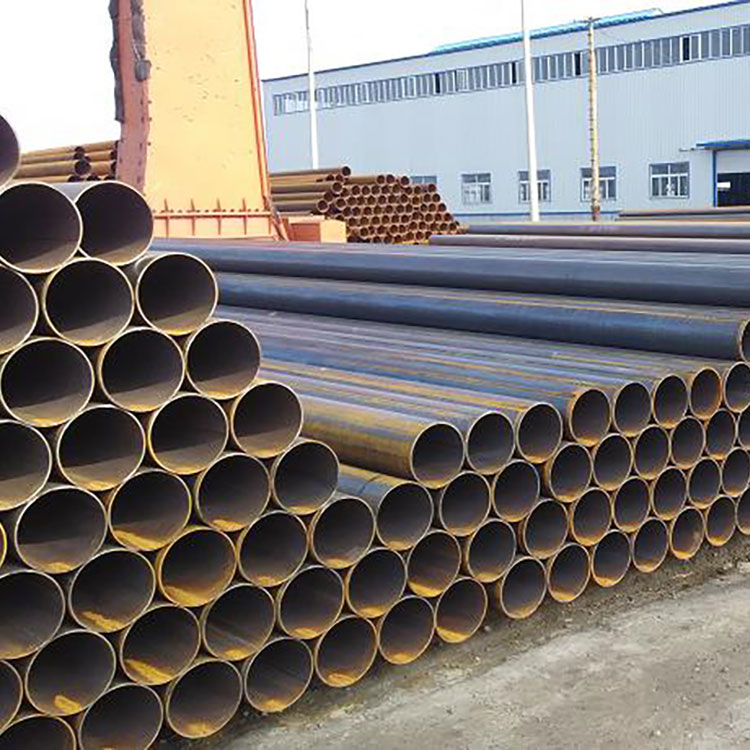Why Is Steel Pipe Essential for Modern Construction and Industry?
2024-12-26
Steel pipes have become an integral part of numerous industries, playing a vital role in construction, manufacturing, and infrastructure development. But why is steel pipe so essential in today’s world? From their durability to their versatility, steel pipes offer a range of benefits that make them indispensable across various sectors. In this blog, we will explore why steel pipes are such a crucial component in modern construction and industry, and how they continue to shape the future of our infrastructure.
1. What Are Steel Pipes and Why Are They Used?
Steel pipes are cylindrical tubes made from steel, designed to transport fluids, gases, or solids, or to serve structural purposes in construction. They come in various sizes, grades, and finishes to meet the specific needs of different applications. Whether it’s in plumbing, oil and gas, or construction, steel pipes are valued for their strength, longevity, and resistance to corrosion.
Steel pipes are used for a wide range of purposes, including:
- Transportation of fluids and gases: Steel pipes are commonly used to transport oil, natural gas, water, and sewage due to their ability to withstand high pressures and resist leaks.
- Structural support: Steel pipes are used in the construction of buildings, bridges, and other structures to provide essential support and stability.
- Industrial processes: Steel pipes are used in manufacturing processes that require precise control of materials, such as in chemical or pharmaceutical plants.
2. Why Is Steel Pipe Preferred Over Other Materials?
While there are various materials used to manufacture pipes, steel has some key advantages that make it a preferred choice in many industries. Let’s take a closer look at some of the reasons why steel pipe is chosen over alternatives like plastic, copper, or PVC.
- Strength and Durability: Steel is a strong and durable material, capable of handling high-pressure situations without deforming or breaking. This makes it an ideal choice for applications where the pipe needs to endure harsh conditions, such as in oil pipelines or deep-water systems.
- Resistance to Corrosion: Steel pipes, particularly those coated with protective materials or treated with corrosion-resistant processes, offer excellent resistance to rust and decay. This makes them suitable for use in industries like water treatment, where pipes are exposed to moisture for long periods.
- Versatility: Steel pipes can be manufactured in a wide range of sizes and thicknesses to meet different needs. From large industrial pipes used for transporting oil to small pipes used in plumbing systems, steel can be adapted to fit any requirement.
- Cost-Effectiveness: Although steel pipes may have a higher upfront cost compared to some other materials, they are highly cost-effective in the long run. Their durability, longevity, and low maintenance needs make them a wise investment for industries that require reliable piping systems.
- Heat Resistance: Steel pipes are resistant to high temperatures, making them ideal for systems that deal with hot liquids or gases. In industries such as chemical production or power plants, steel pipes maintain their integrity even under extreme conditions.
3. How Are Steel Pipes Manufactured?
Steel pipes are produced through a variety of methods, depending on the intended use and required specifications. The most common manufacturing methods include:
- Seamless Pipe Manufacturing: In seamless pipe production, a solid steel billet is heated and pierced to create a hollow tube. The tube is then stretched and reduced to the desired diameter and thickness. This method produces pipes that are highly resistant to pressure and are ideal for applications that require strength and reliability.
- Welded Pipe Manufacturing: In welded pipe production, steel sheets or plates are rolled into cylindrical shapes and welded together to form the pipe. The welded seams are then treated to ensure they meet the necessary strength and quality standards. Welded pipes are typically used for lower-pressure applications and are easier to produce than seamless pipes.
- Spiral Welded Pipe: This method involves spirally welding a steel sheet into a pipe shape. Spiral welded pipes are often used for large-diameter pipelines and are known for their ability to handle high-stress applications.
4. What Are the Common Applications of Steel Pipes?
Steel pipes are used in a wide array of industries and applications. Some of the most common include:
- Oil and Gas Industry: Steel pipes are essential for the transportation of crude oil, natural gas, and other petrochemical products. They are used both on land and offshore to create pipelines that connect oil rigs, refineries, and distribution points.
- Water Systems: Steel pipes are commonly used in municipal water supply and sewage systems due to their durability and resistance to corrosion. They help ensure the safe transport of water to homes, businesses, and industries.
- Construction Industry: Steel pipes serve as structural elements in construction, such as in the framing of buildings, bridges, and towers. Steel pipes are also used for fencing, handrails, and other components that require strength and stability.
- Plumbing: Steel pipes are a standard choice for plumbing systems, especially in commercial or industrial settings. They can withstand high-pressure water and provide a long-lasting, reliable solution for plumbing needs.
- Heating and Cooling Systems: Steel pipes are used in heating and cooling systems to carry hot or cold fluids. Their heat resistance and strength make them ideal for these applications, where temperature fluctuations can put stress on materials.
- Manufacturing and Industrial Equipment: In manufacturing plants, steel pipes are used in a variety of processes, such as transporting chemicals, gases, and other materials. They can also be used as structural supports or as conduits for electrical systems.
5. How Do Steel Pipes Contribute to Sustainability?
Steel pipes are inherently sustainable due to their long life cycle, recyclability, and efficiency. Steel is a material that can be recycled and reused without losing its quality or strength, which significantly reduces the environmental impact of production. Additionally, steel pipes contribute to sustainability in the following ways:
- Energy Efficiency: Steel pipes are used in systems that help conserve energy. For example, pipelines transporting oil, gas, or water are designed to operate efficiently, reducing waste and promoting energy conservation.
- Longer Lifespan: Because steel pipes are durable and resistant to corrosion, they have a longer service life compared to pipes made from other materials. This reduces the need for frequent replacements, saving resources and minimizing waste.
- Recyclability: Steel can be recycled indefinitely without losing its properties. When steel pipes are no longer in use, they can be melted down and repurposed for new products, reducing the need for new raw materials.
6. What Is the Future of Steel Pipes in Construction and Industry?
The demand for steel pipes is expected to continue growing as industries around the world increasingly rely on reliable and sustainable infrastructure solutions. In the future, we may see:
- Improved Manufacturing Processes: Advances in technology will make the production of steel pipes more efficient, reducing costs and environmental impact.
- Stronger and Lighter Pipes: Research into new alloys and materials could lead to the creation of stronger yet lighter steel pipes, expanding their potential applications in industries that require high-performance materials.
- Smarter Pipelines: With the rise of smart technology, steel pipes could be equipped with sensors to monitor the health of the pipeline, detecting potential issues before they become serious problems.
Conclusion
Steel pipes are a cornerstone of modern infrastructure, providing strength, durability, and versatility across multiple industries. Whether transporting oil and gas, supporting construction projects, or ensuring the smooth operation of plumbing systems, steel pipes are essential to the world’s most critical systems. With their ability to withstand harsh environments and last for decades, steel pipes will undoubtedly continue to play a crucial role in shaping the future of construction and industry.



